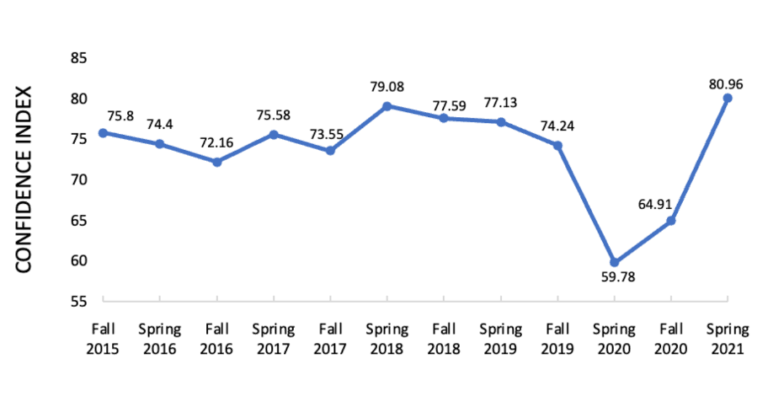In May 2025, Nigerian businesses across various sectors exhibited notable optimism about the country’s macroeconomic outlook, according to the latest survey by the Central Bank of Nigeria (CBN).
Among all sectors, agriculture recorded the highest confidence levels for the month, signaling growing trust in its stability and performance. Meanwhile, the mining and quarrying sector alongside the electricity, gas, and water supply sector revealed the most ambitious plans for business expansion as the country heads into June 2025.
Surveyed firms also anticipate an appreciation of the Naira over the upcoming periods. The agriculture sector stood out with the highest capacity utilization rate for the month, underscoring its active operational status.
Across all sectors, businesses expressed positive expectations for employment growth and expansion throughout the review periods. Despite the prevailing optimism, companies identified key challenges that could restrain growth, notably insecurity, elevated interest rates, and heavy taxation, all of which pose significant hurdles to sustainable operations and investment.
Medium-Term Business Outlook Remains Positive
Looking forward, businesses remain confident about increased commercial activity in June, August, and November 2025, indicating sustained economic momentum over the medium term.
The overall Confidence Index for May stood at 18.7 points, reflecting a broadly optimistic business environment. Projections for the next six months indicate a strengthening outlook, with the index expected to rise to 41.1 points.
Sector-specific analysis revealed that agriculture led confidence levels in the current month with an index of 23.2 points. However, the industry sector is poised for notable optimism growth, with its confidence index forecasted to more than double to 42.2 points over the next six months.
Regional Sentiments and Sectoral Insights
Optimism is consistent across Nigeria’s geopolitical zones, with the North-East region exhibiting the highest confidence at 36.2 points. Conversely, the South-East recorded the lowest optimism at just 2.3 points, largely attributed to ongoing insecurity which continues to hinder business activities and deter investments.
Several operational indicators also reflected a favorable business environment in May, including increases in total order volumes, overall business activity, and financial conditions, reinforcing the strength of underlying business fundamentals.
This positive momentum is expected to continue, with firms projecting further growth in business activity in the coming months.
Aligned with expansion plans, many companies intend to increase their workforce in June 2025. Notably, the construction sector is expected to lead job creation efforts, while the mining and quarrying sector is anticipated to spearhead business growth.
Key Challenges and Economic Risks
Despite the positive outlook, firms highlighted several critical operational challenges. Insecurity topped the list of concerns with a weighted index of 74.5, followed closely by high interest rates at 73.9, and heavy taxation at 73.4. These issues underscore the financial and economic pressures currently faced by Nigerian businesses.
In comparison, challenges such as poor infrastructure (61.5) and an unfavorable political climate (61.2) ranked lower among the top business constraints, indicating a greater focus on immediate economic factors rather than structural or political issues at present.
Currency Outlook and Monetary Expectations
Businesses expressed confidence in the Naira appreciating against the US Dollar over the review periods, reflected in a positive outlook index. However, this optimism is tempered by expectations of rising borrowing costs, signaling tighter monetary policy conditions ahead.
Improved Capacity Utilization Reflects Operational Efficiency
The average capacity utilization across sectors increased marginally to 58.7% in May 2025, up from 56.9% in April. This improvement suggests enhanced resource deployment and greater operational efficiency, reinforcing the overall positive business sentiment during the period.

